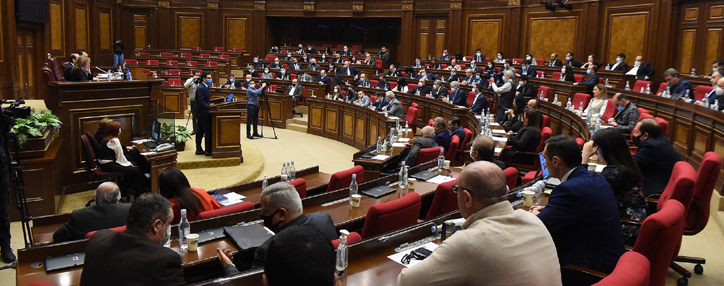Armenian CEC distributes National Assembly seats

YEREVAN, June 28, /ARKA/. Armenia’s acting Prime Minister Nikol Pashinyan’s Civil Contract party that won 53.91% of the votes in the June 20 snap parliamentary elections will control 71 seats in the new National Assembly, Tigran Mukuchyan, the chairman of the Central Election Commission (CEC), announced on Sunday.
The Hayastan (Armenia) alliance, headed by a former president Robert Kocharyan will control 29 seats and another alliance called Pativ Unem (I Have the Honor), led by Artur Vanetsyan, former chief of the National Security Service, will have 7 seats.
Mukuchyan also said that the Zartonk party, the Pativ Unem and the Hayastan alliances demanded earlier to invalidate the results of the early parliamentary elections, citing numerous violations during the pre-election period and during the elections.
According to the official results announced by the Central Election Commission (CEC), Prime Minister Nikol Pashinyan’s Civil Contract party won almost 53.91 percent of the vote and will retain a two-thirds majority in the Armenian parliament.
Ex-president Robert Kocharyan’s Armenia bloc came in a distant second with 21.09 percent, followed by the opposition Pativ Unem alliance led by another ex-president, Serzh Sargsyan which got 5.22 percent.
Under the Armenian election law, the threshold for parties is 5% and for electoral blocs is 7%. Tigran Mukuchyan said during a Sunday meeting of the CEC that the seats are distributed between the parties that received 5% of the vote and the blocs that received 7%.
Although Pativ Unem failed to clear the 7 percent threshold it will have parliament seats because Armenian law stipulates that at least three political forces must be represented in the National Assembly.
International election observers from the Organization for Security and Cooperation in Europe (OSCE) had deemed the election democratic, well-organized and in line with international law.
Pashinyan announced snap election followed months of protests against his government after he signed a statement together with the presidents of Russia and Azerbaijan on November 9, 2020 to end six-week war with Azerbaijan in the Nagorno-Karabakh conflict zone, as a result of which Azerbaijan reclaimed control over large part of Nagorno-Karabakh and all seven regions surrounding it, which had been controlled by Armenian forces for more than a quarter-century.
Pashinyan stepped down in late April as prime minister, as required by law to hold the election, but remained the country’s leader, and is expected to become prime minister again when the new parliament convenes. -0-



